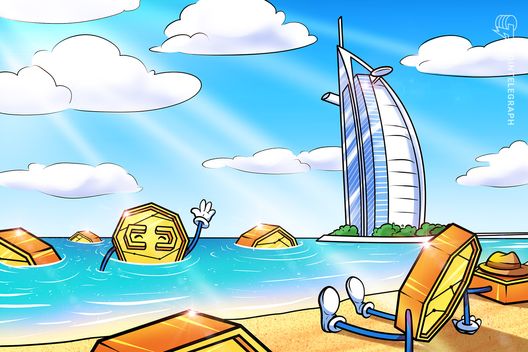

The crypto sector in the United Arab Emirates (UAE) is poised for significant growth, potentially becoming the country's second-largest industry within the next five years. This prediction comes from Chase Ergen, a board member of DeFi Technologies, a publicly traded digital asset investment firm. Ergen cites the UAE's clear regulatory framework, a thriving community of crypto industry leaders, a debt-free economy allowing for tech investments, low crime rates, attractive tax policies, and forward-thinking leadership as key factors driving this growth.
The UAE has actively cultivated a business-friendly environment for the crypto industry. This includes establishing clear regulatory frameworks for virtual assets, overseen by bodies like the Securities and Commodities Authority (SCA) and the Dubai Financial Services Authority (DFSA). The SCA plays a central role in regulating and supervising the cryptocurrency sector, including licensing crypto businesses to ensure compliance with regulatory standards. These regulations cover various aspects of the crypto industry, including the offering, issuing, and trading of crypto assets, initial coin offerings (ICOs), exchanges, virtual asset platforms, and custodian services.
This regulatory clarity is attracting a growing number of crypto firms to the UAE. With over 1,000 crypto firms already operating in the region, regulators like the Virtual Assets Regulatory Authority (VARA) and the Abu Dhabi Global Market (ADGM) enforce strict licensing and Anti-Money Laundering (AML) rules, positioning the UAE as a leading crypto-friendly jurisdiction. The UAE's commitment to fostering innovation while ensuring compliance is further demonstrated by the new regulatory framework for virtual assets, which aims to improve the operational landscape for Virtual Asset Service Providers (VASPs).
The UAE's attractiveness extends beyond regulatory clarity. The country offers world-class digital infrastructure, including specialized business zones like the Dubai Multi Commodities Centre (DMCC) and the Dubai International Financial Centre (DIFC), which provide complete crypto startup ecosystems with co-working spaces, incubators, and business services. Furthermore, the UAE has implemented a tax-free policy on cryptocurrency gains and exempts most crypto transactions from value-added tax (VAT), making it a highly appealing destination for crypto investors.
This favorable environment has led to significant growth in the UAE's crypto market. In the year leading up to June 2024, the UAE's crypto market surged by 42%, making it the third-largest crypto economy in the MENA region, with $34 billion in crypto transactions. A significant portion of this activity is driven by large-scale transactions, with over 93% of the value transferred involving transactions above $10,000, indicating robust institutional engagement. The popularity of stablecoins like USDT and USDC, pegged to the US dollar, further highlights the UAE's unique position in the crypto landscape.
The UAE is also seeing increasing adoption of cryptocurrencies in various sectors, including the travel industry. Airlines like Emirates and Air Arabia are integrating crypto payment options to attract tech-savvy travelers. Emirates, for example, has partnered with Crypto.com to allow passengers to pay for flights and in-flight services using cryptocurrencies.
As the UAE continues to develop its crypto ecosystem and attract more businesses and investors, the prediction that crypto will become the country's second-biggest sector in the next five years appears increasingly likely. The combination of clear regulations, a supportive business environment, and a forward-thinking government positions the UAE as a global leader in the digital finance age.